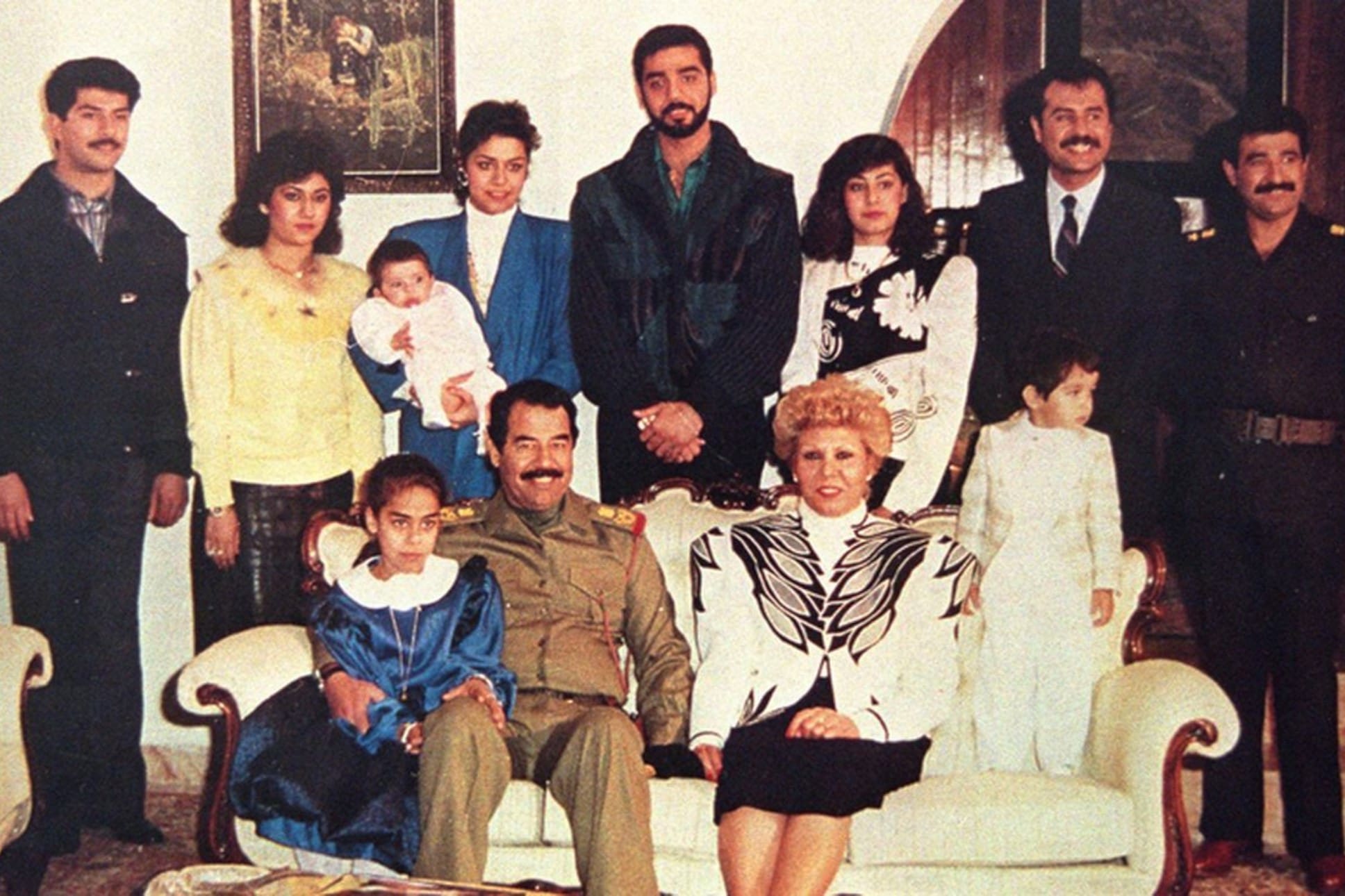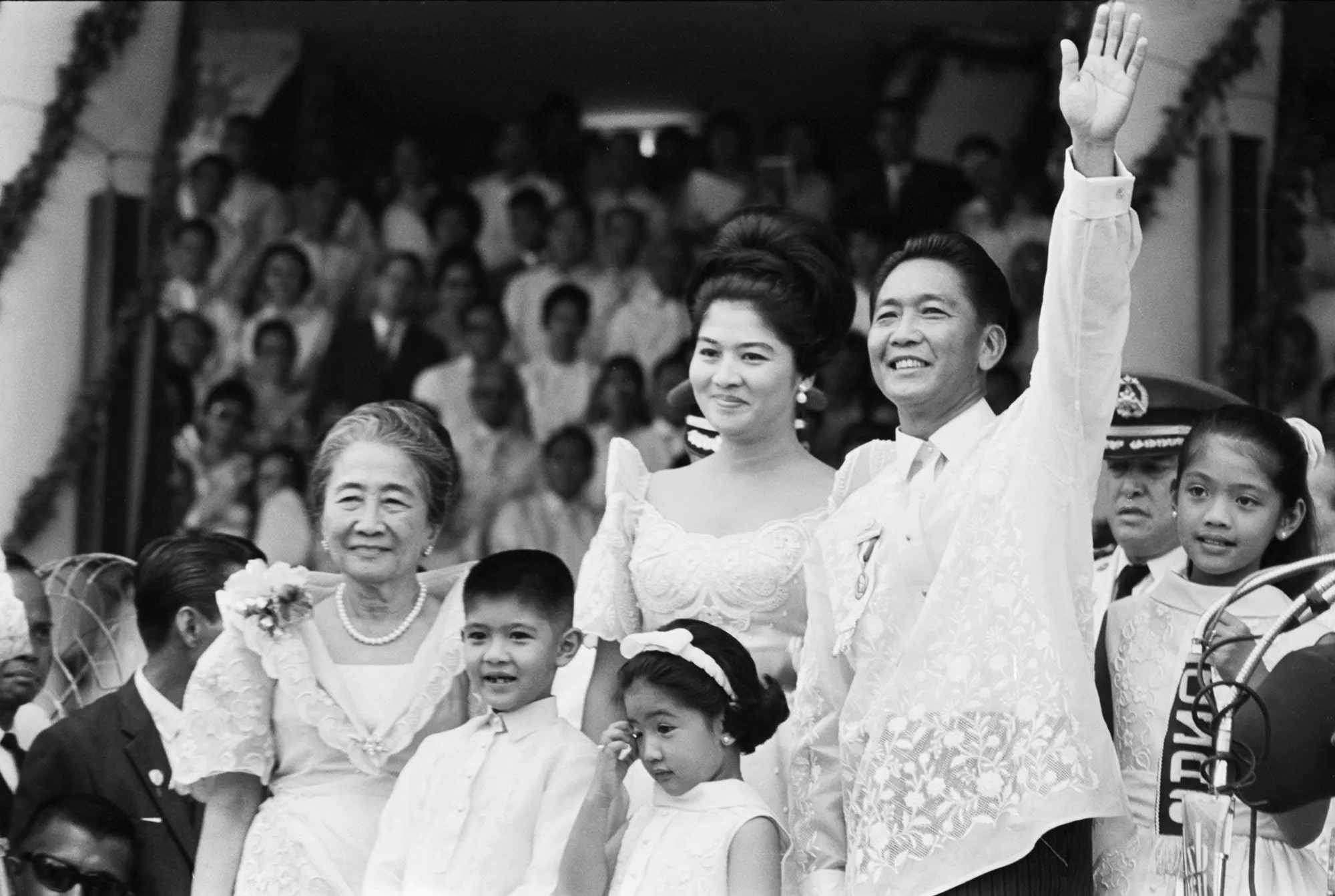
Saddam Hussein, the infamous leader of Iraq, left behind a complex legacy that extends beyond his own actions. His relatives played significant roles in his regime, influencing politics, military operations, and even personal vendettas. Ever wondered who these individuals were and what impact they had? This blog post dives into 37 intriguing facts about Saddam Hussein's family members, shedding light on their lives, roles, and fates. From his sons Uday and Qusay to his lesser-known cousins, each relative had a unique story that contributed to the intricate web of Saddam's rule. Buckle up for a fascinating journey through the lives of those who stood beside one of history's most controversial figures.
Key Takeaways:
- Saddam Hussein's family was deeply involved in his regime, with marriages and alliances serving political purposes. Their post-invasion fates varied, from exile to imprisonment, leaving a lasting impact on Iraqi politics.
- The complex and often tumultuous lives of Saddam Hussein's relatives continue to influence Iraqi society. From vocal critics to executions, their legacy remains a significant part of Iraq's history.
Saddam Hussein's Immediate Family
Saddam Hussein, the former President of Iraq, had a complex family structure. Here are some intriguing facts about his immediate family members.
- Saddam had five children: two sons, Uday and Qusay, and three daughters, Raghad, Rana, and Hala.
- His first wife, Sajida Talfah, was also his first cousin.
- Uday Hussein was known for his violent and erratic behavior, often making headlines for his brutality.
- Qusay Hussein was considered Saddam's heir apparent and was more involved in military and security matters.
- Raghad Hussein fled to Jordan after the 2003 invasion of Iraq and has been living there since.
- Rana Hussein also sought refuge in Jordan along with her sister Raghad.
- Hala Hussein has kept a lower profile compared to her siblings and lives in relative obscurity.
Extended Family Connections
Saddam's extended family played significant roles in his regime. These connections often intertwined with political and military power.
- Saddam's half-brother, Barzan Ibrahim al-Tikriti, was the head of the Iraqi Intelligence Service.
- Another half-brother, Watban Ibrahim al-Tikriti, served as the Interior Minister.
- A third half-brother, Sabawi Ibrahim al-Tikriti, was a key figure in the Iraqi secret police.
- Saddam's cousin, Ali Hassan al-Majid, infamously known as "Chemical Ali," was responsible for chemical attacks against the Kurds.
- Saddam's uncle, Khairallah Talfah, was a significant influence in his early life and political career.
- Saddam's son-in-law, Hussein Kamel al-Majid, defected to Jordan in 1995 but was later lured back to Iraq and executed.
Marriages and Alliances
Marriages within Saddam's family often served political purposes, strengthening alliances and consolidating power.
- Saddam's second wife, Samira Shahbandar, was a controversial figure, causing friction within the family.
- Uday Hussein was married briefly, but his marriage ended in divorce due to his abusive behavior.
- Qusay Hussein married Sahar Maher Abd al-Rashid, and they had three children together.
- Raghad Hussein married Hussein Kamel al-Majid, who later defected and was executed.
- Rana Hussein also married Hussein Kamel al-Majid, making the family dynamics even more complex.
- Hala Hussein married Jamal Mustafa Abdallah Sultan al-Tikriti, who held a high-ranking position in Saddam's regime.
Political Influence and Downfall
Saddam's relatives were deeply involved in his political and military strategies, which ultimately led to their downfall.
- Uday Hussein controlled the Iraqi Olympic Committee and used it as a tool for torture and punishment.
- Qusay Hussein managed the elite Republican Guard and Special Republican Guard units.
- Barzan Ibrahim al-Tikriti was Iraq's ambassador to the United Nations in Geneva.
- Watban Ibrahim al-Tikriti was known for his brutal crackdown on dissent.
- Sabawi Ibrahim al-Tikriti played a crucial role in suppressing opposition movements.
- Ali Hassan al-Majid orchestrated the Anfal campaign, which led to the deaths of thousands of Kurds.
- Hussein Kamel al-Majid's defection was a significant blow to Saddam's regime, revealing secrets to Western intelligence.
Post-Invasion Lives
After the 2003 invasion of Iraq, Saddam's relatives faced various fates, from exile to imprisonment.
- Raghad Hussein became a vocal critic of the new Iraqi government from her exile in Jordan.
- Rana Hussein has maintained a low profile, avoiding political involvement.
- Hala Hussein's whereabouts remain largely unknown, with little public information available.
- Barzan Ibrahim al-Tikriti was captured and executed in 2007.
- Watban Ibrahim al-Tikriti was also captured and executed in 2011.
- Sabawi Ibrahim al-Tikriti was captured and died in prison in 2013.
- Ali Hassan al-Majid was captured and executed in 2010.
- Hussein Kamel al-Majid's defection and subsequent execution remain a cautionary tale of betrayal and retribution.
Legacy and Impact
The legacy of Saddam Hussein's family continues to influence Iraqi politics and society.
- Raghad Hussein has expressed intentions to return to Iraq and re-enter politics.
- The Hussein family's wealth and assets have been the subject of numerous legal battles.
- Saddam's grandchildren, particularly those of Raghad and Rana, are growing up in exile, far from their homeland.
These facts paint a vivid picture of the intricate and often tumultuous lives of Saddam Hussein's relatives.
Final Thoughts on Saddam Hussein's Relatives
Saddam Hussein's family history is filled with intrigue, power struggles, and complex relationships. His relatives played significant roles in Iraq's political landscape, often facing dire consequences for their actions. From his sons Uday and Qusay, known for their brutality, to his wife Sajida Talfah, who stood by him through thick and thin, each family member had a unique impact on Saddam's reign. Understanding these dynamics provides a clearer picture of the man who ruled Iraq with an iron fist. While some relatives sought power, others faced tragic ends, highlighting the volatile nature of Saddam's regime. This glimpse into his family's lives offers valuable insights into the personal and political forces that shaped one of the most controversial figures in modern history.
Frequently Asked Questions
Was this page helpful?
Our commitment to delivering trustworthy and engaging content is at the heart of what we do. Each fact on our site is contributed by real users like you, bringing a wealth of diverse insights and information. To ensure the highest standards of accuracy and reliability, our dedicated editors meticulously review each submission. This process guarantees that the facts we share are not only fascinating but also credible. Trust in our commitment to quality and authenticity as you explore and learn with us.


